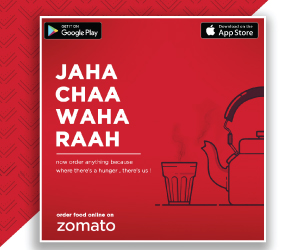
India achieved a record 22 medals, including 6 golds, at the 12th World Para Athletics Championships, showcasing its growing prowess in para sports.
New Delhi: The 12th edition of the World Para Athletics Championships ended here on Sunday with India recording their best-ever haul of 22 medals. The event, hosted by India for the first time, was a rousing endorsement of the country’s rising graph in para sports. Indian athletes set three Championship records and seven Asian marks.
Gold medallist Sadegh Beit Sayah (C) of Iran during the men's javelin throw F41 medal ceremony with silver medallist Navdeep (L) of India and bronze medallist Pengxiang Sun of China. (REUTERS)
Gold medallist Sadegh Beit Sayah (C) of Iran during the men's javelin throw F41 medal ceremony with silver medallist Navdeep (L) of India and bronze medallist Pengxiang Sun of China. (REUTERS)
With six gold, nine silver and seven bronze medals, India comfortably bettered their previous best tally of 17 medals, achieved in the last edition in Kobe, Japan. India’s performance drew lavish praise from prime minister Narendra Modi, who took to X to express his thoughts.
“A historic performance by our para-athletes! This year’s World Para-Athletics Championships have been very special. The Indian contingent had its best-ever performance, winning 22 medals, including 6 Gold Medals. Congrats to our athletes. Their success will inspire several people. I am proud of each and every member of our contingent and wish them the very best for their future endeavours. Hosting the tournament in Delhi has also been an honour for India. Gratitude to athletes and support staff from almost 100 nations who were a part of the tournament,” Modi wrote.
India’s upward trajectory in para sports is hardly surprising. From a solitary medal at 2012 London Paralympics to 29 podium finishes in Paris last year, their para athletes have consistently raised the bar. While shooting and wrestling have been India’s major medal contributors at the Olympics this century, athletics has taken pole position at the Paralympics. A lot of that has to do with the sheer number of events owing to diverse classifications, but that shouldn’t discount the fact that 35 of India’s 60 Paralympic medals have come from track and field events.
“It has been our strength for a few years now and I see para athletics going from strength to strength,” Satyapal Singh, chief coach of India’s para athletics team, said. His athletes didn’t disappoint on home turf.
Field events continued to be India’s strong suit with 16 of the medals coming in javelin, discus, shot put, club throw and jumps. Six medals were won on the track, two each by Preeti Pal and Simran Sharma (100m and 200m) besides Deepthi Jeevanji (400m) and Sandeep (200m).
Javelin was again India’s strong suit with six medals – three gold and three silver. Sumit Antil (F64), Rinku Hooda (F46) and Sandip Sargar (F44) struck gold while Sundar Singh Gurjar (F46), Sandeep (F44), and Navdeep (F41) took silver. With his event dropped from the LA 2028 programme, Navdeep will start training in shot put. Antil reaffirmed his dominance with a championship record.
Sprinters Preeti and Simran emerged as rare track stars for India as the only athletes in the 74-strong squad to win more than one medal. Double bronze medallist at the Paris Paralympics in T35 100m and 200m races, Preeti took bronze in 200m at the Worlds before signing off with a dramatic silver. Simran, whom Preeti considers her idol, didn’t disappoint either – winning 100m gold and 200m silver in women’s T12 category.
Much of India’s subdued returns in track events is due to a lack of equipment, Satyapal said. There was no Indian participation in wheelchair races, which too was due to a lack of basic equipment and infrastructure.
“Each wheelchair costs upwards of ₹4 lakh and needs to be imported from countries like Germany. It’s not easy for our athletes,” Satyapal said. He feels this department is a “goldmine” waiting to be unlocked.
“If we are somehow able to find a way to make wheelchairs more accessible to our athletes, there will be no stopping us,” he added.
Club thrower Ekta Bhyan, who uses a wheelchair for mobility, agreed. “I don’t use a wheelchair for competitions, but my wheelchair costs around ₹1.5 lakh and with increased GST, a number of differently abled people are facing basic mobility issues,” she said.
The Paralympic Committee of India (PCI) is planning to host an international wheelchair marathon in Delhi next year, either in March or October-November. “We hope that such an initiative will raise awareness about wheelchair competitions and events and help India in the long run,” Satyapal added.
Reward push
While the government’s Khelo India and TOPS programmes can claim credit for talent identification and training support, monetary incentives from the central and state governments have proved a major attraction for para athletes.
The central government’s prize money allocation – ₹75 lakh for gold, ₹50 lakh for silver and ₹30 lakh for bronze – is consistent for the Olympics and Paralympics medallists. States such as Haryana and Delhi also offer generous rewards for Olympics and Paralympics medallists.
Haryana award ₹6 crore, ₹4 crore and ₹2.5 crore for gold, silver and bronze medallists, Delhi government recently hiked its prize money to ₹7 crore, ₹5 crore and ₹3 crore for athletes who win gold, silver and bronze at the Olympics or Paralympics. With the Asian Para Games up next, Indian athletes will be hoping to surpass the 108 medals they won at Hangzhou two years ago.


